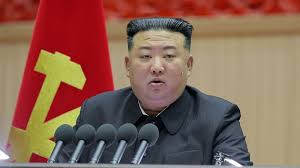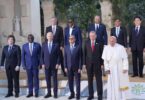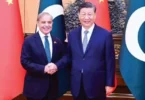Makram Rabah
Amid the intense focus on the events in Gaza and the aftermath of the October 7 Hamas attack on Israel, a significant development unfolded: Cuba and the Republic of South Korea announced the establishment of formal diplomatic relations on February 14.
This historic event ended Cuba’s self-imposed isolation as the last Caribbean and Latin American country to establish such relations with South Korea. The development not only heralds a potentially prosperous future for both nations but also highlights North Korea’s failure to retain one of its most staunch allies, Cuba, within its anti-Western front.
Over the past year, North Korea has shuttered several of its leading embassies in countries including Libya, Uganda, Congo, Nepal, Bangladesh and Senegal, further isolating itself. The increasing isolation of North Korea, even from its traditional and authoritarian allies, reflects its failure to adhere to basic diplomatic norms. It underscores the reality that such Cold War relics are struggling to transition into the 21st century, and if they manage to, they are likely to find themselves obsolete.
North Korea’s situation parallels Iran’s ongoing diplomatic maneuvers as it tries to pressure the Biden administration into brokering a peaceful settlement between Israel and Hezbollah, aiming to avert the potential destruction of Iran’s most valued proxy. Since the October 7 Hamas offensive, Iran has maintained an ostensibly neutral stance, advocated “restraint” and simultaneously directed its network of proxy militias across the Middle East to sow instability, all under the guise of supporting Hamas’s endeavor to annihilate the Zionist entity.
Iran’s approach to diplomacy, which vastly differs from North Korea’s strategy of apocalyptic threats, involves portraying itself as an ally to non-state actors like Hezbollah or the Houthis. These groups, supposedly acting independently, engage in attacks against Israel or disrupt global logistics through piracy in the Bab al-Mandeb Strait.
Earlier in March, Amos Hochstein, Deputy Assistant to the US President and Senior Adviser for Energy and Investment, made a brief visit to Beirut where he met with Lebanese officials to convey that the chances of Israel ceasing its targeted operations against Hezbollah across Lebanon are minimal. Although Hochstein successfully demarcated the maritime border between Lebanon and Israel over a year ago, his current mission to halt hostilities and persuade Hezbollah to withdraw from southern Lebanon has proven challenging. This is particularly true after Hezbollah’s unprovoked attack on Israel the day following October 7, a fact proudly proclaimed by Hassan Nasrallah, Hezbollah’s Secretary-General, in his latest televised speech.
Hochstein emphasized during his trip that discussions on a Lebanese-Israeli land border would only proceed once Hezbollah’s withdrawal is secured. Until then, Israel has no intention of stopping its targeted strikes against valuable assets across Lebanon.
The delusional mindset of North Korea is mirrored by its Iranian counterparts, who boast of their capability to destroy Israel and “liberate” Palestine, particularly Jerusalem. However, recent events suggest that this objective is low on the IRGC’s list of priorities. Kim Jong Un, in his typical bluster, has declared his “lawful right” to annihilate South Korea. Ironically, both North Korea and the Iranian regime believe their ailing economies and outdated technology are superior to those of their adversaries.
In reality, South Korea’s GDP is significantly higher than that of North Korea as South Koreas gross domestic product (GDP) amounts to “2,080 trillion South Korean won, while that of North Korea was approximately 36.2 trillion South Korean won, 57 times greater than that of North Korea.”
Recently, Hassan Nasrallah, in a televised speech, claimed that Israel is losing the war in both Gaza and southern Lebanon. He spent an hour extolling the virtues of the “axis of resistance,” without acknowledging the dire situation of Gaza’s civilians or the devastation in southern Lebanon, which has likely displaced its inhabitants permanently. Nasrallah’s refusal to recognize that his actions have put Lebanon on a collision course with a full-scale Israeli war exacerbates Lebanon’s ongoing economic and political crises.
The case of Cuba distancing itself from the so-called axis of resistance illustrates that countries like North Korea and Iran are gradually losing allies willing to support the prioritization of military arsenals over economic stability and the well-being of their citizens.







